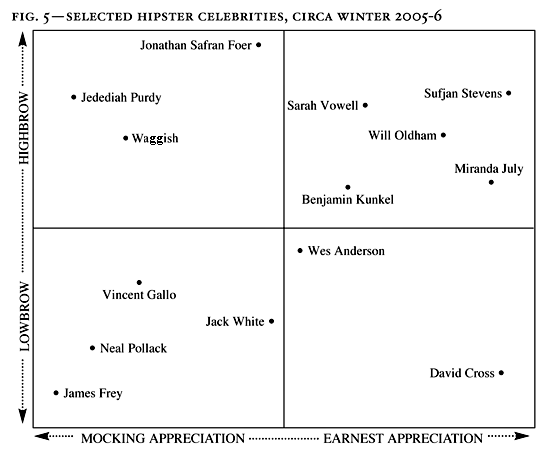I purposefully read Beckett’s Watt after Proust to clear away ideological detritus. After Finnegans Wake, I didn’t sense any particular residue, so I chose to reread John Crowley’s brilliant and unique Little, Big, not realizing that its approach is in some ways opposite that of the Wake.
The two books don’t seem to have any special relation, and I don’t know anyone that’s claimed a place for Joyce as one of Crowley’s major antecedents. (I see more of James Branch Cabell and Charles Kingsley than Joyce, for example.) But with the Wake floating in my mind, there was one polar difference that weighed on me the entire time I was reading Little, Big, which I’d loosely put as gnosticism vs. physicalism.
Now, I’m a bit biased here because my Wake teacher is an avowed enemy of gnostics (his criticism in a nutshell: “They just make shit up!”) and so had something of a vested interest in reading an anti-gnosticism into Finnegans Wake, but even on the surface level, the Wake is a very physical and visceral book. It’s most obviously present in Joyce’s obsessive scatology and descriptions of near-every bodily functions, which eventually make the book clinical enough that all disgust and fetishism fall away, and you might as well be reading about the sexual proclivities of moths. But as I said last time, Joyce isn’t one to deal in ephemeralities: there is little theology or eschatology in the Wake. When religion is invoked, it’s often with direct relation to the physical or the historical.
Little, Big (and for that matter, much of Crowley’s work) not only sets itself to discussing the reality behind the appearance, but does so in a rather gnostic matter. The subsequent Aegypt books make this connection explicit, but it’s certainly there in Little, Big, in which a set of the privileged are allowed mysterious, ineffable access to a world within a world that exists consubstantially with ours.
One look at Finnegans Wake and it seems like mysticism. But Joyce is almost devoutly quotidian: the things he repeatedly, obscurely analogizes are the very basics of the world and more importantly, the known: male, female, parents, children, birth, death, day, night, sex, education, work, play. The most realistic scene (in
III.4) appears to concern a pub-owner and his family, and the
situation as far as I can discern it is hardly anything more unusual than Leopold Bloom’s in Ulysses. If anything, it’s more normal, as there’s far less information given to make these people unique. The pub-owner, named Porter, is a Protestant Irishman and well-respected citizen leeading an typical middle-class life. Joyce loads the scene up with the usual allusions and such, and I take from it that this scene is to be put on an equal footing with all the complications and mysteries have gone before. The message: This is it. This is the world for all to see and all that anyone can see.
It’s hardly so clear-cut, of course, and the heavy use of the Egyptian Book of the Dead are one of the most prominent mythologies that seem to negate Joyce’s physicalism. But as I read it, these mythologies chiefly analogize the physical, monistic reality around us, rather than alluding to some Other realm, just as Bloom’s hallucinations in Nighttown explore his brutal reality. You’re welcome to disagree, but the sense I get is that language and the physical are the two realms at work, and Joyce’s problem isn’t the lack of correlation between one and the other, but the overlapping and overloaded correlation between the two.
Little, Big, on the other hand, purposefully portrays the world-as-we-know-it through a gauzy haze, abstracting New York as “the City” and only vaguely referencing massive events of upheaval in this world, as though to emphasize that the characters are already in process of leaving this world and entering another. Little, Big repeatedly invokes the unexplainable and mysterious motivations in showing the encroaching Otherness in the familiar world. The basic illusoriness of the physical is even more present in Engine Summer, and I think that Crowley enjoys using the concept to show how stories and conceptions of the world trump any certainty about the world itself, using fairy tales as one of his key metaphors. And ultimately, I think Joyce prefers to use the tales to serve the world, rather than the other way around.
Supposedly the hyper-obscure debate between Bishop Berkeley (note the “Ding hvad in idself” reference to Ding an sich) and Saint Patrick near the very end of Finnegans Wake describes the triumph of materialism over Platonic-styled idealism, but I won’t pretend to have much idea of what it means. But consider Giordano Bruno, who figures heavily in both Crowley and Joyce’s worlds. For Crowley, it’s the gnostic/hermetic tradition that Bruno embodies, with his memory arts and mystical reality therein. At least to my eye, Joyce doesn’t reference those aspects often, at least nowhere near as much as the near-constant references strewn about to Bruno’s cosmology and the physical, natural homogeneity of the universe. (Bruno was quite creative and disparate in his philosophies and heresies!) I think he was quite happy having his hands full with the world as we know it.
I don’t really have a preference for one approach over the other, but amazing how Joyce made me forget about non-monistic accounts of reality. Amazing Joyce’s utter presence in this world.
[Thanks to those who responded. I will address your comments soon!]
 In the March issue, Bill Wasik’s
In the March issue, Bill Wasik’s